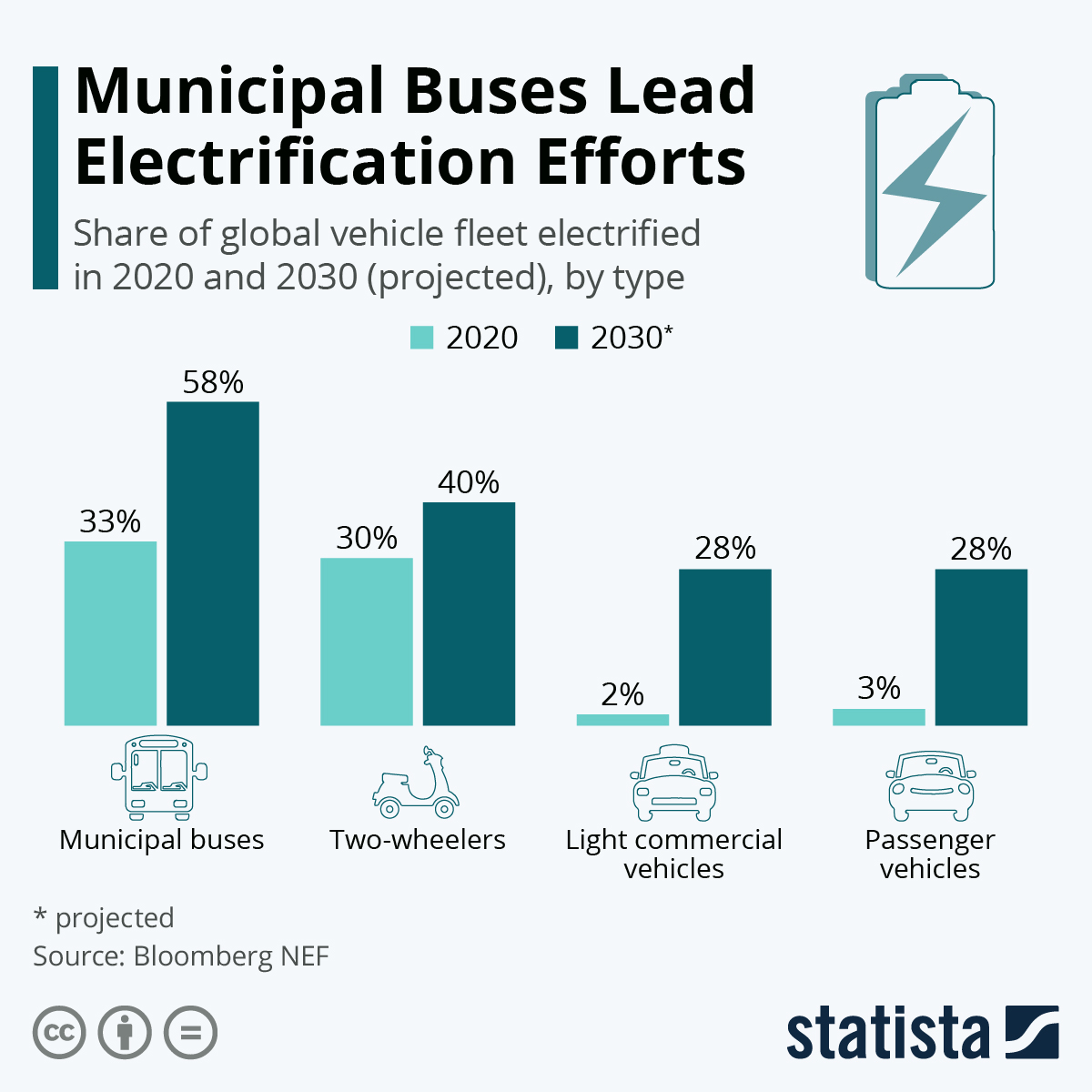Looking for an electrification project that really dents global oil demand, one has to look past Tesla and to municipal buses. According to Bloomberg NEF, the share of the global municipal bus fleet that consists of electric vehicles far surpasses that of electric passenger vehicles. This is largely due to the fact that municipalities or even national governments can dictate what buses can be bought for the use of cities' public transport networks.
This is exactly what happened in China which is home to 98 percent of the world's electric buses. More than 500,000 have been introduced to Chinese streets in a coordinated effort by the Chinese government, while very few are in operation in other countries.
The result of this move in terms of oil displacement is big: Bloomberg NEF calculated in 2018 - when 400,000 Chinese e-buses were already on the road - that China's electric buses saved more than 200,000 barrels of oil per day while EVs all around the world only saved around 40,000 barrels a day.
Even though the Chinese fleet saves oil, the electricity they run on is not necessarily carbon free. In 2019, almost 70 percent of Chinese electricity was still generated from coal and gas. While that renewables share is comparable to that of the U.S., European countries, which operated 4,500 electric buses in 2019, have been generating electricity from more renewable sources on average.





















